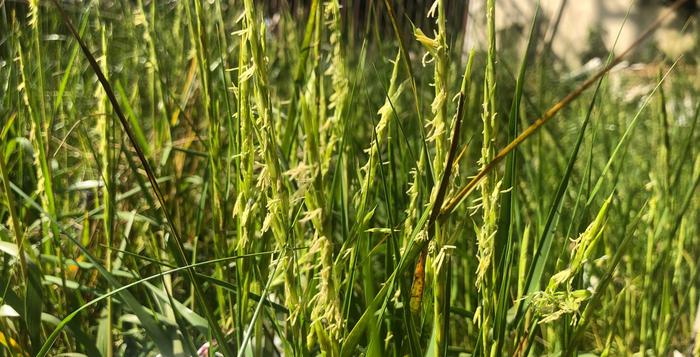A groundbreaking study recently published in the eminent journal Nature Genetics has unveiled critical insights into the evolution of rice, a staple crop that plays a central role in global food security. Researchers from King Abdullah University of Science and Technology (KAUST) in Saudi Arabia and Wageningen University & Research in the Netherlands have delved deeply into the genetic underpinnings of various rice species, demonstrating how genomic changes over time have shaped this vital agricultural product. Their findings not only shed light on the evolutionary pathways of rice but also hold significant implications for future agricultural practices, especially in the context of a changing climate.
Rice, which has a rich history as one of the earliest domesticated crops, has been cultivated for approximately 10,000 years. Throughout this period, the intense artificial selection practiced by farmers aiming to enhance nutritional content and economic yield has inadvertently led to a reduction in genetic diversity. This trend poses a considerable threat to the crop’s resilience against environmental challenges, including climate-related stresses. Wild relatives of rice, part of the Oryza genus, stand in stark contrast, having undergone around 15 million years of natural evolution. As a result, these wild varieties possess a remarkable genetic diversity that allows them to adapt to a plethora of environmental conditions such as heat, drought, and salinity.
Professor Rod Wing, a prominent figure in the KAUST research team, articulated the significance of the genus Oryza and its diverse genomes. His assertion highlights that this rich genomic tapestry provides critical insights into the evolutionary repercussions borne by rice and its wild relatives. This research elucidates how evolutionary processes have molded the genetic framework of rice, ultimately influencing its adaptability to various ecological niches. The ability to decode and analyze these genomic variations may serve as a foundation for future advancements in enhancing rice resilience through selective breeding and biotechnological interventions.
A notable aspect of the study revolves around the distinct somatic characteristics observed between diploid and polyploid species of Oryza. Humans, being diploid organisms, inherit two sets of chromosomes, derived from each parent. Conversely, many plants exhibit polyploidy, acquiring multiple sets of chromosomes. This phenomenon can augment the plant genome and confer a greater capacity for adaptability in response to environmental stresses while facilitating the emergence of novel traits and, at times, even new species. The researchers meticulously examined nine tetraploid and two diploid wild rice relatives, uncovering distinctions in their genomes that serve as markers for specific species.
One pivotal finding highlighted in this study is the impact of transposable elements, often referred to as jumping genes, on genetic variation. These mobile DNA sequences enable the genome to evolve by shifting from one genomic locus to another, effectively generating diversity. The researchers found that considerable differences in genetic makeup among rice species primarily stemmed from these transposable elements, underscoring their crucial role in the evolutionary process. The immense variations in genome size—varying more than twofold—reflect the profound influence of polyploidy and offer insights into how certain genes have enhanced plant robustness against a range of environmental pressures.
In addition to genome sizes and the role of transposable elements, the research team illuminated the evolutionary pathways of wild rice. They constructed an evolutionary tree that delineates the emergence of new species, shedding light on the historical population dynamics and stressors that prompted genomic adaptations. By understanding these stress-induced genomic changes, the scientific community can better predict how current environmental challenges might shape the future of rice varieties.
Furthermore, the collaboration between KAUST and Wageningen University exemplifies the importance of interdisciplinary approaches in tackling complex scientific questions. The convergence of genetics, evolutionary biology, and agricultural science has immense potential to foster innovations that address both current and future challenges in food production. This study highlights the necessity for ongoing research into the genomic attributes of wild rice relatives, as they may harbor untapped genetic resources that could be leveraged for agricultural advancement.
Subject of Research: Oryza genome evolution
Article Title: Oryza genome evolution through a tetraploid lens
News Publication Date: 28-Apr-2025
Web References: Nature Genetics DOI
References: N/A
Image Credits: King Abdullah University of Science and Technology
Tags: agricultural implications of genetic studiesartificial selection in agricultureclimate change and agricultureconservation of rice genetic resourcesevolution of rice speciesfood security and rice cultivationfuture of rice farminggenetic diversity in cropsOryza genus diversityrice genetic researchsustainable agriculture practiceswild relatives of rice





